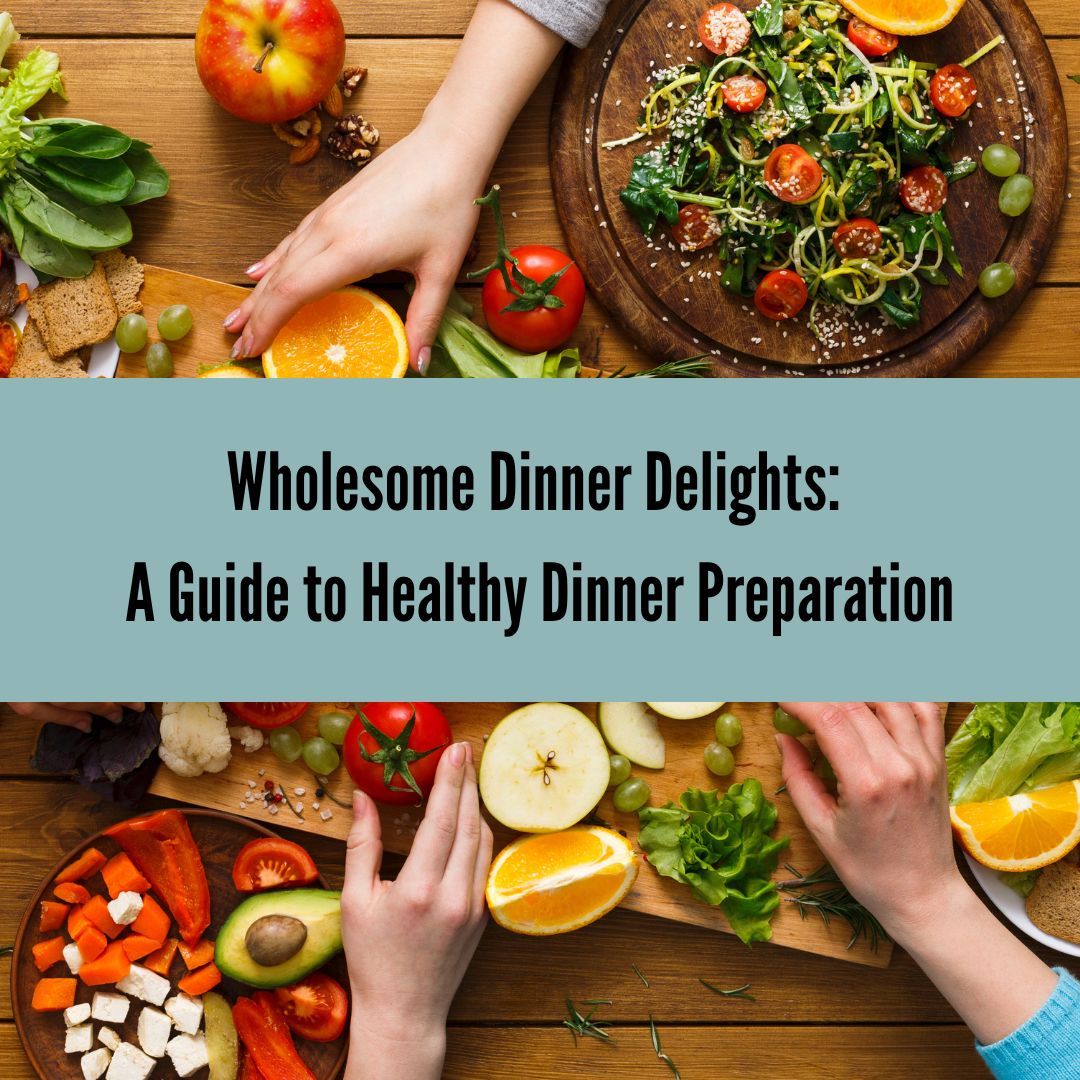
Dinner is not just a meal; it’s an opportunity to nourish your body and satisfy your taste buds with delicious and nutritious dishes. Healthy dinner preparation doesn’t have to be complicated or time-consuming. In this blog post, we’ll explore some tips and ideas for creating wholesome and satisfying dinners that will leave you feeling energized and satisfied.
Plan Your Dinner Menu
One of the keys to healthy dinner preparation is planning. Start by creating a weekly meal plan that includes a variety of foods from different food groups. This ensures you get a wide range of nutrients and flavours in your diet.
Consider incorporating:
- Lean proteins like chicken, turkey, fish, tofu, or legumes.
- A rainbow of vegetables to provide essential vitamins and minerals.
- Whole grains such as quinoa, brown rice, or whole wheat pasta for fibre and sustained energy.
- Healthy fats like avocados, nuts, and olive oil.
- Flavourful herbs and spices to enhance taste without excess salt or sugar.
Choose Balanced Portion Sizes
Maintaining portion control is crucial for managing calorie intake and preventing overeating. Use smaller plates and bowls to help control portions and avoid going back for seconds.
A balanced plate should consist of:
- Half of your plate is filled with vegetables or salad.
- A quarter of your plate with lean protein.
- A quarter of your plate with whole grains or starchy vegetables.
Prioritize Protein
Protein is essential for muscle repair, immune function, and overall well-being. Include lean protein sources in your dinner recipes to keep you feeling full and satisfied. Some ideas include grilled chicken breast, baked salmon, lentil stew, or tofu stir-fry.
Load Up on Vegetables
Vegetables are rich in vitamins, minerals, and fibre, making them a valuable addition to your dinner plate. Try roasting, steaming, or sautéing a variety of colourful vegetables to create visually appealing and nutritious dishes. Don’t forget to experiment with different seasonings and dressings to enhance flavour.
Incorporate Whole Grains
Whole grains are an excellent source of complex carbohydrates and fibre. They provide sustained energy and help keep you full for longer. Swap out refined grains like white rice and pasta for whole grain options like quinoa, whole wheat couscous, or brown rice in your dinner recipes.
Limit Processed Foods
Processed foods often contain excessive amounts of salt, sugar, and unhealthy fats. Reduce your consumption of processed and packaged dinner options by cooking meals from scratch whenever possible. This gives you more control over the ingredients and allows you to make healthier choices.
Practice Mindful Eating
Eating mindfully involves paying attention to the taste, texture, and aroma of your food while eating. It can help prevent overeating and improve your relationship with food. Turn off distractions like TV and phones during dinner and savour each bite.
Stay Hydrated
Remember to stay hydrated by drinking water throughout the day. Sometimes, thirst can be mistaken for hunger. Opt for water over sugary drinks or excessive caffeine, especially during dinner.
Healthy dinner preparation is all about making balanced choices that nourish your body and delight your taste buds. By planning your meals, choosing wholesome ingredients, and practicing portion control, you can create dinners that support your overall health and well-being. So, put on your apron, get creative in the kitchen, and enjoy the benefits of a nutritious dinner tonight!
Leave a Comment
You must be logged in to post a comment.



0 Comments